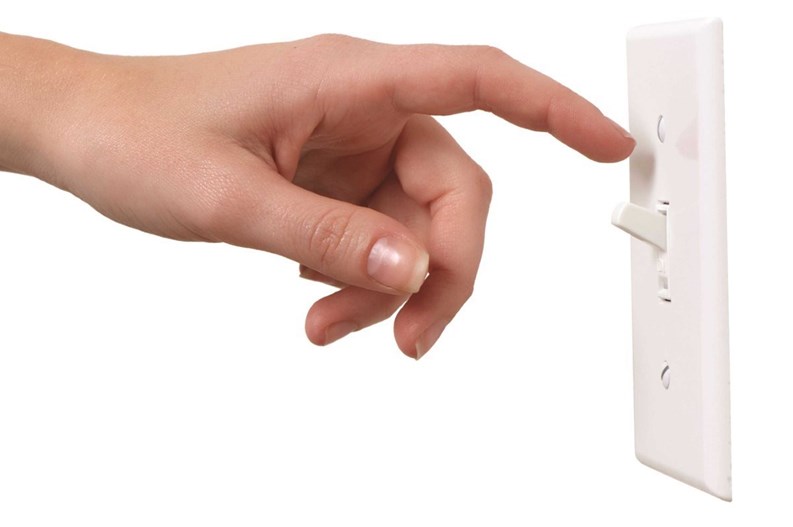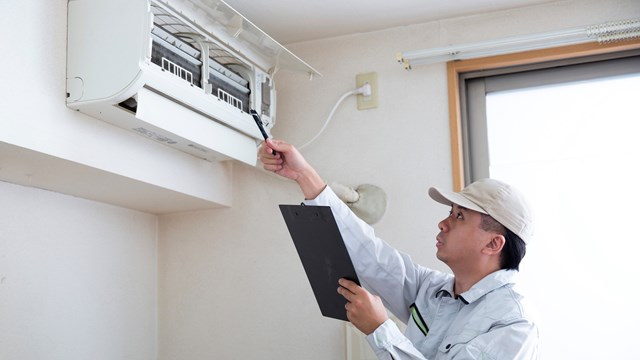Saving energy does a lot more than just reduce a building’s carbon footprint and toxic emissions—going green can save a building some green too. The steps a co-op or condo building can take to reduce energy consumption and save money range from the very simple to the very complex.
Energy efficiency has become a “buzz phrase” over the past couple years across New England and more and more gadgets and devices have come on the market that are specifically designed to use less energy and save money.
We’ve asked various energy experts to offer their top 10 tips for saving energy and money. Remember, the list is just a start—there are many ways in which you can go green but following some of these ideas is a great beginning.
Check Your Current System
Condominiums, like people, come in all different flavors. “There are high rises, low rises, townhouses and stand-alone buildings. Some have more sophisticated equipment and some don’t,” says Jack Carr, senior vice president of engineering for Criterium Engineers in Portland, Maine. “If you have a 80-year-old, four story apartment building in Cambridge, Massachusetts that has a steam boiler in the basement and has all radiators upstairs there going to have different heating issues than a modern townhouse complex that has brand new, high-efficiency units. You have to check what you have and go from there.”
Better Appliances and Accessories
It’s simple: Upgrade appliances and other accessories to ones that are more energy efficient and you’ll conserve energy. When you’re choosing new appliances, look for the Energy Star certification and the EnergyGuide Label. The certification means that the appliance has met standards that make it an energy-efficient unit. They use less energy and water than the older models. The Energy Star label was established to reduce greenhouse gas emissions and other pollutants caused by the inefficient use of energy and to make it easy for consumers to identify and purchase energy-efficient products.
“Installing Energy Star lighting and appliances is one of the simplest, quickest ways to conserve energy,” says Caitriona Cooke, manager of the New England Consulting & Construction Division for Conservation Services Group in Westborough, Massachusetts.
For additional information, check out www.energystar.gov.
Schedule an Energy Audit
With anything in life, it’s hard to know where you’re going when you don’t know where you’ve been — and a building is no different. An energy audit will provide an overview of how much energy your building is saving and losing. The experts say that, as a result, you’ll see what changes you may need to make. An energy audit is a comprehensive analysis of a building’s systems and energy performance.
“Energy audits are useful, but you must decide if you are going to audit the entire complex or individual units,” says Carr. “One of the things in managing the façade and the envelope of the building is to minimize air infiltration, and one of the ways you do that is in an energy audit. They’ll do a blow test. How they do that is they put a fan in the door of the unit and create a pressure situation, trying to draw air out of the building and seeing where it comes from and looking for those areas that allow air to pass through the skin of the building.”
One of the laws of thermodynamics is that heat always moves from hot to cold, so buildings lose heat. An energy audit will figure out how the building is losing heat, adds Carr.
All energy efficiency experts recommend using a qualified firm with certified energy auditors. Energy Auditors New England, a certified energy auditor based in Yarmouth, Maine, conducts audits in Maine and neighboring states. For additional information call them at (207) 829-1003 or visit www.energyauditorsne.com.
Increase Your Insulation
Insulating your home will not only help reduce your heating and cooling costs, making it more energy efficient, but it will also make your home more comfortable. Experts advise that you shouldn’t wait until the big freeze to insulate.
“Insulation is a big issue in New England. It’s one of the first things you want to take a look at to make sure you have enough,” says Carr. “Typically in New England you’re talking about a minimum of 12 inches of insulation in your attic ceiling, attic roof or attic floor, but 18 inches is better. Ideally you’d like to have R-40 insulation but that’s for newer buildings. Heat goes up, just like a chimney, so if a budget is involved, I’d spend money on insulating the attic or roof first, followed by the walls. Walls lose very little heat.”
Unplug Appliances
Unplugging appliances when you are not using them is as easy as pie, but very few people do it, says Tom Rooney, technical director for Efficiency Maine in Augusta.
“The biggest thing right now is cable boxes and DVRs because they are on continuously. So if you go away just unplug them. Unplug anything that’s plugged in with a clock on it. That alone would save so much energy,” he says. “Individuals can buy surge protectors with an occupancy sensor, just like you’d have on a light switch. So you can have a desk light or a computer that is set up and if you leave for more than an hour it automatically shuts off.”
Don’t forget to close windows and blinds on hot days, and cool off your unit at night by running ceiling fans. Check plumbing penetrations in kitchen and baths and seal any gaps, adds Cooke.
If an equipment change to energy-efficient appliances proves too costly, Rooney recommends buying a set-back programmable thermostat. A programmable thermostat is designed to adjust the temperature according to a series of programmed settings that take effect at different times of the day.
“If you program your thermostat in the winter to go back five degrees when you are not home and program it to go up five degrees in the summer, you’ll notice a difference in your electric bill,” says Rooney. “In the summer you can program your thermostat so your home will be cool when you get home.”
Consider Cogeneration
No, cogeneration isn’t getting different generations of families to live together and share expenses. Instead, it’s when you evaluate your facility’s thermal and electric load for a combined heat & power (CHP) viability, also known as cogeneration. “CHP,” says Dale Desmarais, sales manager for Aegis Energy Services, based in Holyoke, Massachusetts, “is the efficient simultaneous production of electricity and hot water using natural gas to reduce your energy costs.”
This does not replace your boiler system, but instead it works in conjunction with your existing boilers, and in most cases extends their life, he says. Average savings, notes Desmarais, can range from $50,000 to $300,000 per system and typical paybacks range from 3.5 – 5.5 years. Some of the benefits of CHP are: lower energy costs, excellent payback on investment, a highly efficient use of fuel and reduced carbon emissions. “This is truly one of the best defenses against rising energy costs,” says Desmarais.
Aegis Energy Services (aegisenergyservices.com) allows clients to take advantage of energy cost savings from an Aegis cogeneration system without requiring capital investment. According to Desmarais, Aegis Energy designs, installs, owns, maintains, fuels, and operates a modular cogeneration system at no cost to your facility. Aegis will interface the cogeneration system with your own electrical and mechanical systems to provide both metered electrical and thermal energy (heat). The cogenerated electricity will be provided to your facility at a discount from your prevailing utility electrical rates while heat is provided at standard cost, he says.
Aegis has installed many co-gen systems throughout New England and the New York-New Jersey area. One such installation is the Smithfield Gardens, a 56-unit affordable assisted living facility in Seymour, Connecticut. According to a project profile, Aegis put a CHP system in the facility’s boiler room in order to recover wasted heat. An energy survey, prior to installation, found that Smithfield Gardens could save 22 percent on its annual energy costs if a CHP system were installed. The system has been in operation since November 2006 and the 500,000 kWh of electricity annually generated supplies 56 percent of the total building demand. It also offsets loads that would have been supplied by the local utility.
Upgrade Windows
If your windows are more than 15 years old, your home could get drafty in the winter in a hurry. Replacement home windows have become more energy efficient in recent years, says Carr. “Condominiums are always replacing windows every 20 to 30 years. So when windows are replaced care should be made,” he says. “Windows should have a low E-value (meaning low thermal emissivity) and a thermal pane. Never put in a single pane window. Windows are usually paid for by the unit owner and not the condo board when they are replaced. Condominium associations and their bylaws will often insist that they have control over what types of windows are put in for two reasons: to get uniformity in the window appearance and you’ll usually get a better price if they are bought in bulk.”
Adjust Lighting Controls
Carr believes that lighting is an area where most homeowner associations can make changes. Carr recommends that management install lighting controls, vacancy sensors and timers that will help to turn off lights that aren’t needed. These can be installed in fitness centers, restrooms, electric rooms, laundry rooms, trash collection rooms and all common areas.
“There’s multiple ways this can be done,” says Carr. “Sometimes the control is based on motion or it can be based on natural lighting. Sometimes there can be enough light so that it will actually turn the lights off.”
Inefficient lighting can consume up to 15% of a building’s energy needs or more. Energy-efficient lighting can reduce consumption by 50% or more.
Learn About Incentives
If you want to install Energy Star appliances and other energy-saving accessories, such as low-flow shower heads, it’s possible to earn money back if you know how. A good place to start, says Cooke, is to contact your local utility or energy services provider. “Many offer generous rebates for energy efficiency measures and equipment upgrades,” she says.
Conduct a Combustion Safety Test
Water heaters and furnaces are critical components for regulating temperature in a home. But if they’re not operating properly, they can use energy inefficiently. Worse than that, they can emit fumes like carbon monoxide that are toxic and difficult to detect—so Cooke recommends having a combustion safe
Lisa Iannucci is a freelance writer and a frequent contributor to New England Condominium. Staff Writer Christy Smith-v Sloman contributed to this article.







Leave a Comment